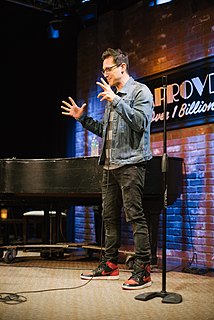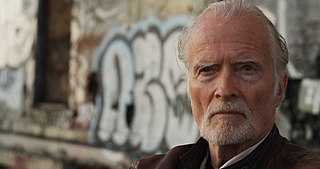A Quote by Dan Levy
In many ways, the Internet is about diversification, and yet, in the wrong hands, the digital world can use those very examples to reinforce the narrowest of perspectives.
Related Quotes
God does not have a fixed plan that he must carry out; on the contrary, he has many different ways of finding man and even of turning his wrong ways into right ways...The feast of Christ the King is therefore not a feast of those who are subjugated, but a feast of those who know that they are in the hands of the one who writes straight on crooked lines.
It's important to Russia to be able to attract capital and to attract technology to develop their oil fields, their oil and gas fields, many of which suffer from lack of access to the very best technologies. And it's also important, and this has been the US government's view to have diversification of supply, diversification of supply roots and, of course, diversification in terms of alternative energy.
People over the age of thirty were born before the digital revolution really started. We've learned to use digital technology-laptops, cameras, personal digital assistants, the Internet-as adults, and it has been something like learning a foreign language. Most of us are okay, and some are even expert. We do e-mails and PowerPoint, surf the Internet, and feel we're at the cutting edge. But compared to most people under thirty and certainly under twenty, we are fumbling amateurs. People of that age were born after the digital revolution began. They learned to speak digital as a mother tongue.
Much to my chagrin, I think that cinema has gone the wrong way in America because in many ways, I pioneered the use of video which eventually became digital video. Everyone can do it; it's Pop Art time: "Everything is art, why should you take it so seriously, after all it's kind of like a clambake." I don't buy that.
emotion clouds the rational, and many perspectives guide the full reality. To view current events as a historian is to account for all perspectives, even those of your enemy. It is to know the past and to use such relevant history as a template for expectations. It is, most of all, to force reason ahead of instinct, to refuse to demonize that which you hate, and to, most of all, accept your own fallibility.
I have a personal staff that helps me scour the internet and other media for the latest scientific peer-reviewed findings, the latest examples of climate-related extreme weather events, and the latest examples of progress. The world is in the midst of a sustainability revolution that has the scope of the industrial revolution, but with the speed of the digital revolution. That's not enough without new laws and the right kind of political leadership. But it does give us a base from which to build a movement that will save us from the most catastrophic consequences of the climate crisis.
In every part of the world with which I am familiar, young people are completely immersed in the digital world - so much so, that it is inconceivable to them that they can, for long, be separated from their devices. Indeed, many of us who are not young, who are 'digital immigrants' rather than 'digital natives,' are also wedded to, if not dependent on, our digital devices.
I use many different gadgets connected with computers; I use PCs, laptops and a Palm Pilot. I also use the Internet to visit websites, especially within Polish-language Internet. I usually go to political discussion groups and sites - of course, as I use my real name, people never believe that they are chatting with me!


































